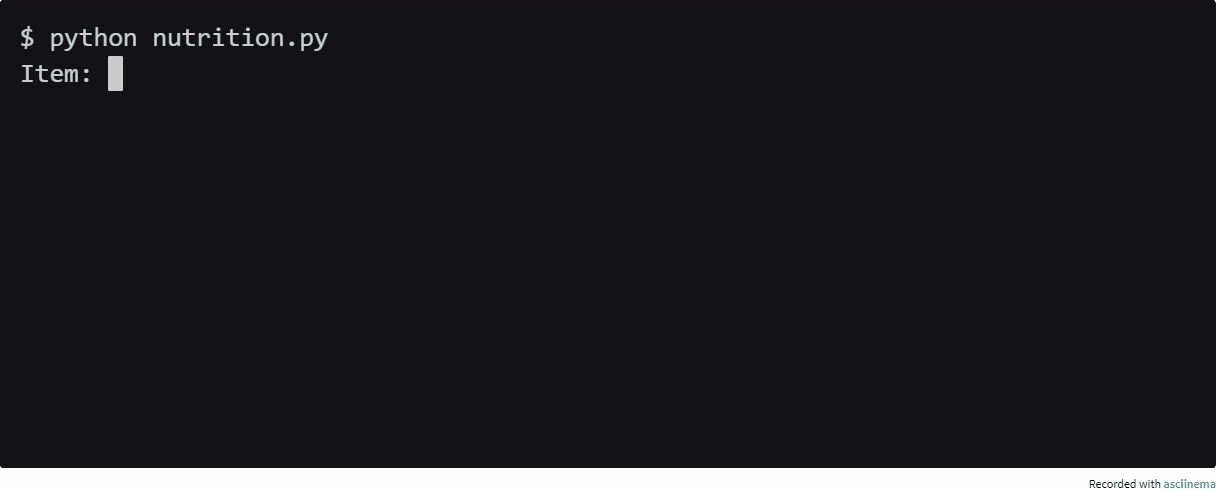Nutrition Facts
The U.S. Food & Drug Adminstration (FDA) offers downloadable/printable posters that "show nutrition information for the 20 most frequently consumed raw fruits ... in the United States. Retail stores are welcome to download the posters, print, display and/or distribute them to consumers in close proximity to the relevant foods in the stores."
In a file called nutrition.py, implement a program that prompts consumers users to input a fruit (case-insensitively) and then outputs the number of calories in one portion of that fruit, per the FDA's poster for fruits, which is also available as text. Capitalization aside, assume that users will input fruits exactly as written in the poster (e.g., strawberries, not strawberry). Ignore any input that isn't a fruit.
Hints
- Rather than use a conditional with 20 Boolean expressions, one for each fruit, better to use a
dict to associate a fruit with its calories!
- If
k is a str and d is a dict, you can check whether k is a key in d with code like:
- Take care to output the fruit's calories, not calories from fat!
Before You Begin
Use ssh program such as putty to login to practice server (158.108.112.10) with your account:
Then execute
cd cpe113
to change directories into that folder.
Then execute
mkdir nutrition
to make a folder called nutrition in your cpe113 folder.
Then execute
cd nutrition
to change directories into that folder. You can now execute
nano nutrition.py
to make a file called nutrition.py where you'll write your program.
Demo

How to Test
Here's how to test your code manually:
Run your program with python nutrition.py. Type Apple and press Enter. Your program should output:
Calories: 130
Run your program with python nutrition.py. Type Avocado and press Enter. Your program should output:
Calories: 50
Run your program with python nutrition.py. Type Sweet Cherries and press Enter. Your program should output:
Calories: 100
Run your program with python nutrition.py. Type Tomato and press Enter. Your program should output nothing.
Be sure to try other fruits and vary the casing of your input. Your program should behave as expected, case-insensitively.
You can execute the below to check your code using check50, a program that cpe113 will use to test your code when you submit. But be sure to test it yourself as well!
check50 thanawat-ku/problems/cpe113/2022/nutrition
Green smilies mean your program has passed a test! Red frownies will indicate your program output something unexpected.
Visit the URL that check50 outputs to see the input check50 handed to your program, what output it expected, and what output your program actually gave.
How to Submit
In your terminal, execute the below to submit your work.
submit50 thanawat-ku/problems/cpe113/2022/nutrition
